All Stories
-
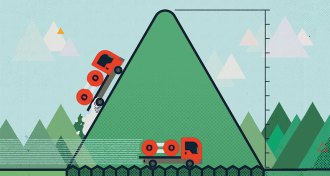 Chemistry
ChemistryNew, greener catalysts are built for speed
Researchers are designing catalysts to move chemical reactions without using precious metals, or at least using less of them.
-
 Animals
AnimalsCoconut crab pinches like a lion, eats like a dumpster diver
Coconut crabs use their surprisingly powerful claw for more than cracking coconuts.
By Susan Milius -
 Plants
PlantsEnzymes aid rice plants’ arsenic defenses
Rice plant roots have natural defenses against arsenic.
-
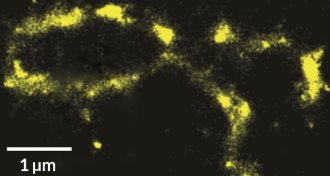 Life
LifeNew imaging technique catches DNA ‘blinking’ on
Dye-free imaging technique zooms in below 10-nanometer threshold, allowing new cellular views.
-
 Microbes
MicrobesMicrobes survived inside giant cave crystals for up to 50,000 years
Microbes trapped in crystals in Mexico's Naica mine may represent some of the most distinct life-forms found in Earth so far.
-
 Planetary Science
Planetary ScienceEuropa lander mission takes another step toward reality
NASA is working on a possible lander mission in which the main science goal would be to search for signs of life on Jupiter’s moon Europa.
-
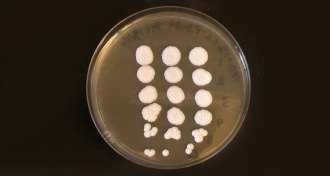 Health & Medicine
Health & MedicineCommon fungus may raise asthma risk
The presence of a fungus in the infant gut can signal development of asthma by age 5.
-
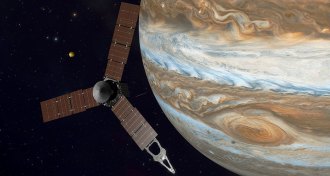 Planetary Science
Planetary ScienceJuno spacecraft won’t go into shorter orbit around Jupiter
Juno will remain in its 53-day orbit around Jupiter due to an issue with two helium check valves, NASA reports.
-
 Climate
ClimateAntarctic sea ice shrinks to record low
The Antarctic sea ice extent has reached a new low just two years after hitting a record high.
-
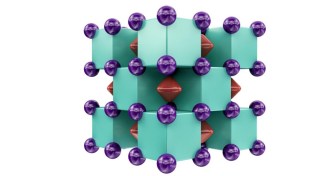 Chemistry
ChemistryHelium’s inertness defied by high-pressure compound
At pressures over a million atmospheres, helium reacts with sodium.
-
 Astronomy
AstronomyCitizen scientists are providing stunning new views of Jupiter
A camera aboard NASA’s Juno spacecraft is giving citizen scientists a crack at discovering never-before-seen features of Jupiter.
-
 Planetary Science
Planetary ScienceCeres harbors homegrown organic compounds
NASA’s Dawn spacecraft has detected organic matter — the building blocks of life — on the dwarf planet Ceres, a new study suggests.